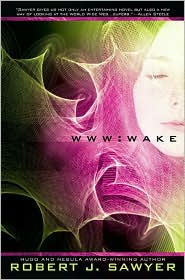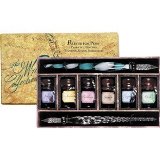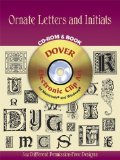In an earlier post, I wrote a letter to new writers where I described how the path of a writer is one that winds, ebbs and flows. How do you keep following the same path? One of the qualities that a writer must have is the ability to be persistent. Well, that one word can have a lot of connotations, so I’d like to explain what “being persistent” means to me.
So what does it mean? Well, if you want to be a writer it means you don’t give up. It means when you “think” you have no readers, no chance of success, or that you’ve just written something terrible you keep on the path. You see, it is too easy to drown in self-pity or thoughts about how you’re a horrid writer, but the truth of the matter is that you (and only you) have control over that. To be blunt, if you think you suck — get an editor, or get your work critiqued. If you believe you can’t write horror because your fight scenes are terrible, try perfecting your dialogue for a while instead. Practice, practice, practice and play with your words. If you take a break, plan to get back on that wagon, but don’t ever give up completely.
I’d like to share with you a personal anecdote, because I think it applies here. Not every story I’ve written I enjoy, and truth be told I never read my work after it’s been published. (Unless it’s for an author reading). I did once, when I was nine. I had won a Halloween fiction contest for a community publication; seeing my words in print was a very meaningful experience for me, so powerful that I read that story over and over again. It seems a little silly to me now, but I still have this vivid feeling of “winning.”
When I was young, the world was a magical, musical place. I didn’t realize how many writers were out there, and I didn’t understand writing is a multi-faceted business until years later. When I did, I put down my pen and paper for a time because the competition was overwhelming. Once I started writing again, though, I never stopped and never looked back.
Writer Lucien Soulban had an excellent thought related to that recently on Twitter. “Words of Wisdom for Writers: Their success is not your failure.”
Everyone’s path as a writer is unique, including my own. Just like there isn’t “one way” to write, there isn’t “one way” to follow that path. However, if you want to be a writer, you need to be persistent about it. There is enough opportunities in the publishing world for many writers out there, and just because you may admire another writer or you’re not finding yourself on the fast track to success, doesn’t mean that you are a crappy one. All it means, is that your path may be different. Remember, your words are footprints on that path, so don’t give up. I didn’t.
🙂

 But I’m not writing this letter to talk to you about why writing is “difficult” or why it’s “important.” No, I’m putting these words together for an entirely different reason. You see, the path you take to becoming a successful writer really has three trails that intersect with one another. The first trail is the one that led you to your decision to write — whether that be “just” a short story or a blog post, that’s what started you on the path.
But I’m not writing this letter to talk to you about why writing is “difficult” or why it’s “important.” No, I’m putting these words together for an entirely different reason. You see, the path you take to becoming a successful writer really has three trails that intersect with one another. The first trail is the one that led you to your decision to write — whether that be “just” a short story or a blog post, that’s what started you on the path. 
 One of the things that I’ve discovered, is that if you overload yourself on the business of writing and the essentials of everyday life, your writing can be affected in ways that you don’t even realize. I find that this is especially true if you “rush” toward a deadline.
One of the things that I’ve discovered, is that if you overload yourself on the business of writing and the essentials of everyday life, your writing can be affected in ways that you don’t even realize. I find that this is especially true if you “rush” toward a deadline. 
